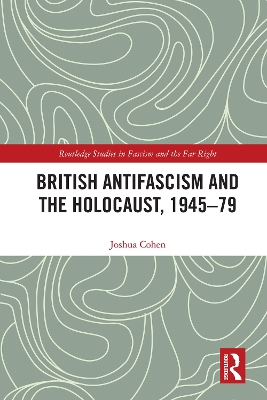Routledge Studies in Fascism and the Far Right
1 total work
British Antifascism and the Holocaust, 1945-79 explores the extent to which the Holocaust has shaped British antifascism.
The author tests assertions of an uncomplicated relationship between Holocaust memory and the imperative to resist postwar fascist revivals. For those with a scholarly interest in how antifascists confront their opponents, it is essential to understand whether the Holocaust has always been seen as an insurmountable barrier against fascism: is the idea of the genocide's constant antifascist 'use' actually a dangerous assumption and, if so, what are the implications of this for 'Antifa' as its battle with the contemporary far right unfolds? This book provides a political and structural history of the Holocaust's relationship to antifascist organisations and questions whether networks of solidarity formed around Holocaust memory, including analysing the impact of the genocide in Jewish antifascists' motivations and rhetoric. It also assesses the Holocaust's political capital in wider antifascism and connected anti-racism, including in defence of the Black and Asian communities increasingly victimised by fascists over the postwar period.
This book will appeal to scholars and students with interests in antifascism, fascism, racism, and Jewish and left-wing history in Britain, and how these intersect with Holocaust consciousness.
